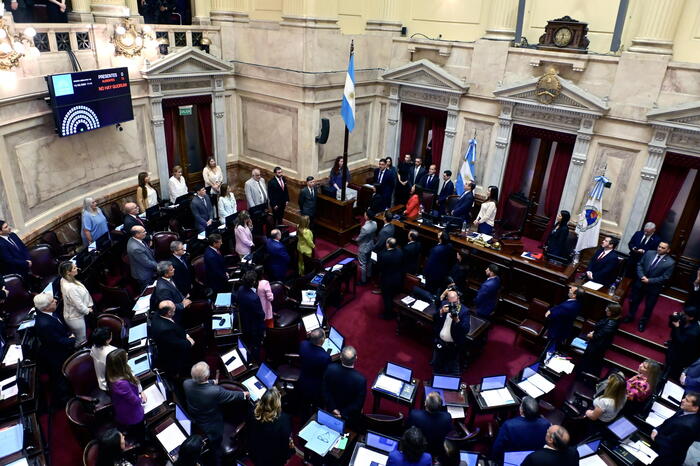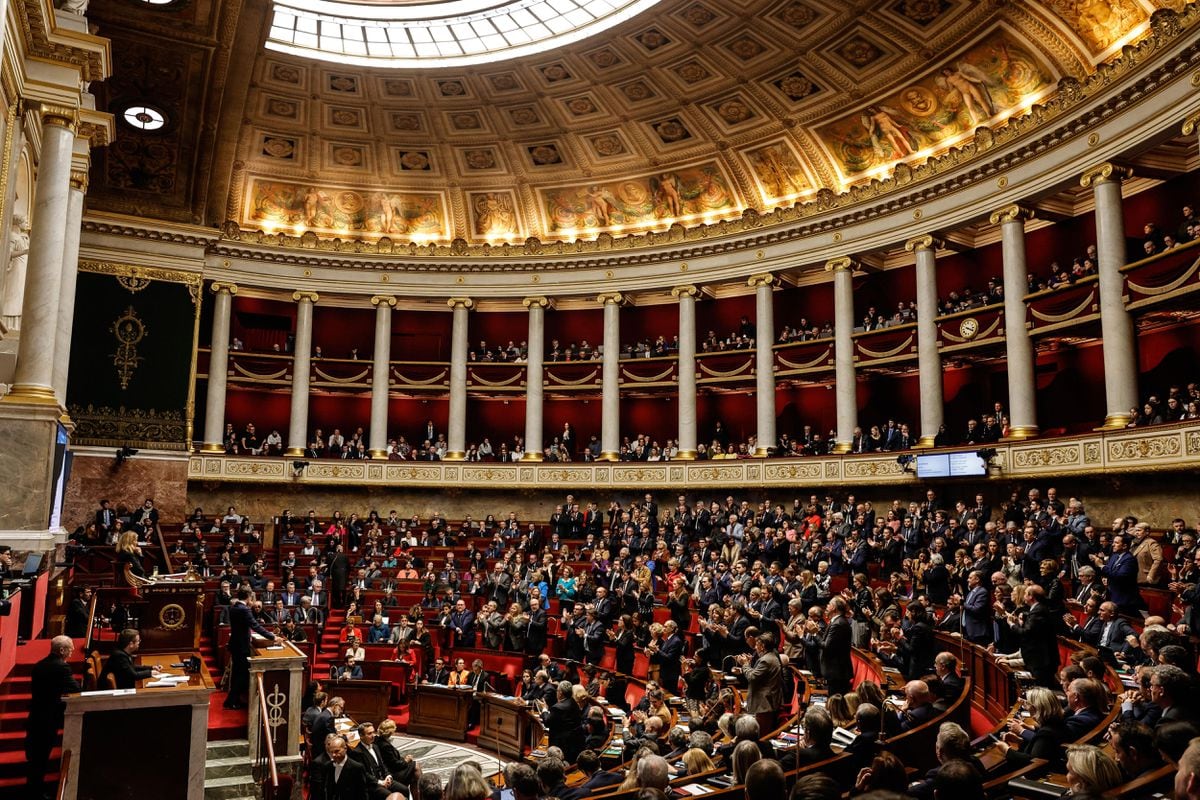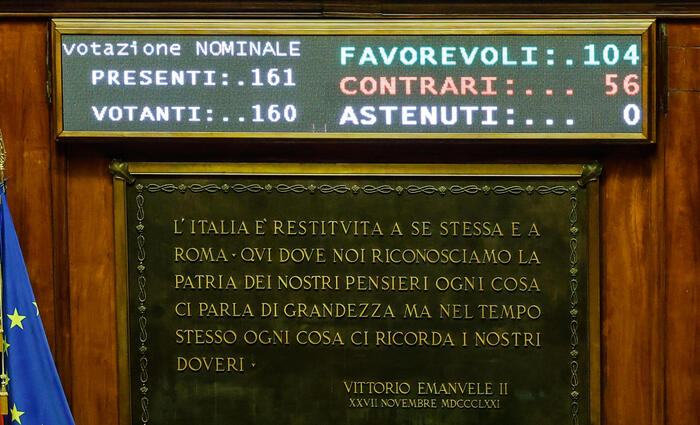The Senate has approved this Wednesday by the emergency route the first housing law of democracy, which will impose limits on rental prices in the most stressed areas of some cities. The new norm has passed the Senate process – without accepting any of the 324 partial amendments proposed or the six that wanted to veto its entirety – with 134 votes in favor, 117 against and only one abstention. The Basque and Catalan nationalist parties have raised again, as happened in Congress, a common front of opposition because they understand that the law invades autonomic competences. The standard will enter into force the day after its publication in the BOE, which will occur within a few days.
More information
The keys to the new housing law: a rent cap, stressed areas, real estate fees paid by the landlord and rules for large holders
The vote passed without surprises and the housing law has finally passed its final procedure without any accepted modification on the project that was endorsed by Congress on April 27, then with 176 votes in favor, 167 against and one abstention, after a long-forged pact between the two parties of the coalition Executive, PSOE and Unidas Podemos, with ERC and EH Bildu. Also then, in the lower house, the law received the rejection of PP, Vox, Ciudadanos, JuntsxCat, PDeCAT and Coalición Canaria.
The housing law was one of the commitments of the investiture pact between the formations that supported the progressive government of Pedro Sánchez, but then it was stuck by fundamental differences between the PSOE, Unidas Podemos and the objections of different ministers of Development and Transport. The regulation includes new concepts that until now had not been part of any regulation, such as the regulation of rental prices in stressed areas, a new definition of the figure of large owners and the creation of a reference index that will determine the rents paid for the flats. In the remainder of 2022, the 2% cap in force, which was approved last December as part of the package of measures for families affected by the war crisis in Ukraine, will be applied, while in 2024 it will be 3% and, from now on, the National Institute of Statistics (INE) will create a new index, more stable and lower than the evolution of the CPI. The law also raises the protection around evictions of people in situations of vulnerability and relaxes the requirements for the administration to declare a stressed market zone.
This Wednesday's debate, very long, also went according to plan. The Minister of Transport, Ráquel Sánchez, the only member of the Executive present in the Upper House, took the opportunity to highlight that after this last procedure culminated "a long, difficult road, of almost three years of intense work and permanent dialogue with the affected sectors and with the academic and professional world". The minister praised the legal strength of the law, noting that it takes aspects of standards from other European countries and is "socially ambitious" in transforming the traditional concept of access to housing in Spain.
Opposition to the law has again been expressed on two fronts. The right has not wasted the debate to relate the approval of the law with an alleged blackmail and surrender of President Pedro Sánchez to the EH Bildu formation, which some popular deputies have come to relate very crudely with the controversy of the candidates convicted of ETA crimes present in the lists of that abertzale formation . The first to launch this accusation has been the senator of the PP Antonio Silván, who has asked the head of the Executive to withdraw the norm to show that he was not influenced by "the friends of the murderers of ETA". Silván concluded that with this project Sánchez and the PSOE senators "have podemized housing" with "a squatting law of private property."
Another popular senator, the deputy secretary general of the PP, Pedro Rollán, has influenced the same line of the secret alliance between the PSOE and Bildu and raised the tone of the accusations even more by reviewing that "the foundations" of that law "rise on the ashes of the Hipercor with 21 dead, on the rubble of the square of the Dominican Republic where 12 civil guards were killed and on the twisted irons of the house Zaragoza barracks".
The socialist María Isabel Moreno was happy to be able to talk about housing and its problems after listening to the interventions of the PP and Vox and argued that putting caps on the rise in rents in some neighborhoods, as is being imposed in some European countries, seeks to move away the speculative component in the sector and give more stability and balance to that market.
The critical stance of some Basque, Catalan, Canarian and Galician nationalist formations was summarized by the senator of Junts, Josep Lluís Cleries, when denouncing a "clear intention" of the PSOE, Unidas Podemos, in this case in alliance with ERC and EH Bildu, which he described as "lackeys", to invade the exclusive autonomic competences in housing, in what he pointed out as a serious recentralizing setback.









